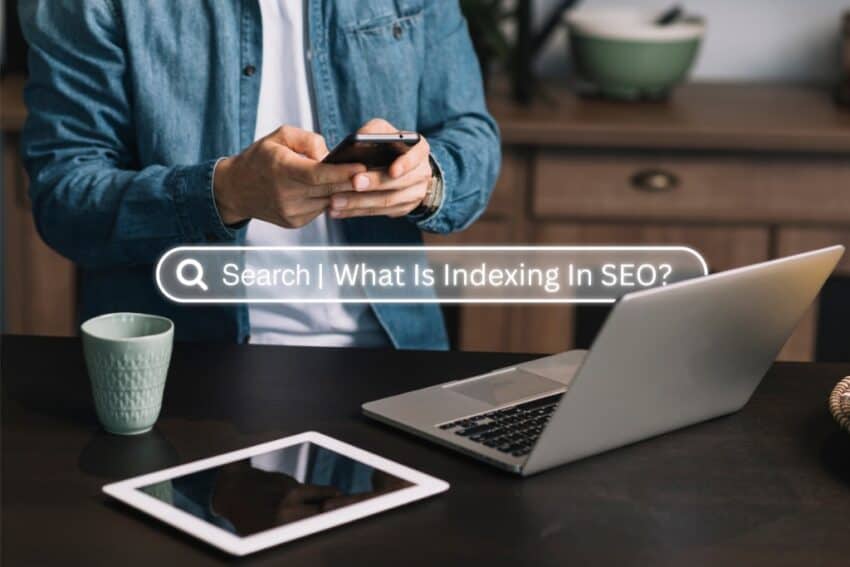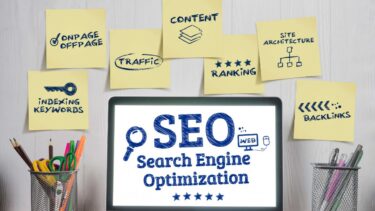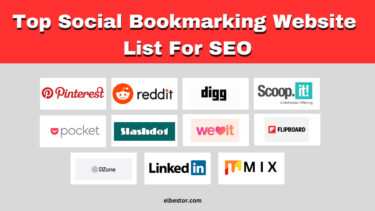Indexing is a fundamental idea in the huge field of search engine optimization (SEO), and it is a key factor in deciding how visible your website will be on search engine results pages (SERPs). Anyone working in digital marketing or running a website who wants to enhance their online presence must have a solid understanding of indexing and how it works. In this blog, we will discuss the idea of indexing in SEO, its importance, and the numerous factors related to it. Let’s get started!
Contents
- 1 What Is Indexing?
- 2 The Google Index
- 3 Why Is Indexing Important in SEO?
- 4 Accessibility
- 5 Monitoring And Managing Indexing
- 6 Final Words
- 7 FAQs
- 7.1 What is the difference between crawling and indexing?
- 7.2 How long does it take for a page to get indexed after it’s crawled?
- 7.3 What should I do if my pages are not getting indexed?
- 7.4 What happens if my website has duplicate content that gets indexed?
- 7.5 Are there any penalties for improper indexing practices?
- 7.6 Can I manually request indexing for a specific page?
What Is Indexing?
The process of indexing, which includes adding web pages to a search engine’s database, is crucial to Search Engine Optimization (SEO). When a search engine crawls the internet, it examines each web page and adds details to its index. The page title, meta description, content, and other pertinent data are included in this data, which may be used to assess the relevancy and position of the page in search results.
Indexing in SEO refers to the procedure search engines like Google employ to organize and store web pages so they can be retrieved when users do a search. Crawlers, often known as spiders or bots, are used by search engines to visit websites, examine their content, and catalog them for later use. Search engines can effectively organize and retrieve online pages thanks to indexing, which also helps them provide users with appropriate results.
The Google Index
The lifeblood of an online business is organic traffic, but you won’t get any of it if Google doesn’t crawl your material. The Google index is essentially a collection of websites that Google is aware of. When these pages are indexed, Google may determine whether to include them in search results based on the knowledge it has of them and their content. The idea is quite simple and easy. However, being indexed is a difficult process.
Google’s Indexing Process
When you type a search term into Google’s search box, you anticipate receiving virtually immediate access to a sizable database of online sites that match your query. The intricate technology that makes this feasible in the background is Google’s indexing process. Now, let’s talk about how Google’s indexing process works:
Discovery
Google must first find a URL. Google pulls links from newly discovered pages when crawling the web. These pages can be found by following links on other websites or in sitemaps, or by looking at where inbound links are originating from.
Crawling
The page must then be visited by Google. Google uses advanced algorithms to determine which URLs should be prioritized. Googlebot will then visit pages that fulfill the priority level. This is referred to as crawling.
Indexing
Finally, Google extracts a page’s content. Google assesses the content’s quality and determines its uniqueness. This is also the stage at which Google renders sites to view all of their content, layout, and several other components. If everything is in order, the page will be indexed, or else, will be ignored by Google.
Why Is Indexing Important in SEO?
For various reasons, indexing is a fundamental and essential component of SEO (Search Engine Optimization):
Search Results Visibility
A web page can show up in search results once it has been indexed by search engines like Google. A page won’t be visible to potential visitors if it is not indexed since it won’t appear at all in search engine results pages (SERPs).
Search Engine Rankings
Indexing involves more than simply being visible; it also involves how well your website performs in search engine results. Pages that are properly indexed have a better chance of coming up higher for pertinent keywords and phrases. This is crucial since improved rankings typically result in increased organic visitors.
Regular Updates
By indexing websites with regularly changing material, consumers are always able to get the most recent information. Re-crawling and re-indexing websites on a regular basis by search engines keeps material current and relevant.
Accessibility
By indexing your website, you can make sure that users can find your pages both directly and through searches. Indexing is essential for reaching a wider audience as many people rely on search engines to find websites.
Relevance Of Keywords And Content
Search engines examine the content of your web pages while indexing them and link them to pertinent keywords and phrases. These details are utilized to choose the searches that your pages should show up for. Your content will be more in line with user search intent if it is properly indexed.
Monitoring And Managing Indexing
- Use tools like Google Search Console to regularly check the indexing status of your website to make sure all crucial pages are included and there are no serious indexing mistakes.
- To provide search engines with a clear overview of the structure of your website and to make it simpler for crawlers to find and index your pages, submit an XML sitemap.
- Control which pages on your website should be indexed and which shouldn’t be using the robots.txt file.
- 404 errors should be closely watched and quickly fixed because they can harm indexing and user experience. Fix any broken links or implement correct redirects.
- Keep a healthy indexing status and preserve your website’s competitiveness in search results by regularly updating and improving its content and architecture.
Final Words
You should now have a better knowledge of indexing in SEO after reading this article. Understanding indexing is essential for SEO success in the internet world. Understanding indexing, how it functions, and the variables that affect it can help you take action to make sure your website is visible and easy to access in search engine results. To remain competitive in the always-changing world of SEO, keep tracking and improving your indexing procedures. Or else, you can contact Elbestor for any digital marketing-related services.
FAQs
What is the difference between crawling and indexing?
Indexing is the act of storing and structuring data so that it may be retrieved in search results, whereas crawling is the process of search engine bots visiting websites and gathering data.
How long does it take for a page to get indexed after it’s crawled?
Although the time it takes for a page to be indexed might differ, it typically takes a few days to a few weeks. However, there is no set timeframe.
What should I do if my pages are not getting indexed?
Make sure your website can be crawled, that technological problems are resolved, and that you provide original, high-quality content. An XML sitemap submission is also beneficial.
What happens if my website has duplicate content that gets indexed?
Duplicate content may lead to bad rankings. Use canonical tags or other techniques to tell search engines which version of the information is unique and trustworthy.
Are there any penalties for improper indexing practices?
Although indexing problems don’t have immediate effects, they might affect your website’s performance by lowering ranks and decreasing visibility in search results.
Can I manually request indexing for a specific page?
Yes, you may request indexing for specific sites using Google Search Console’s URL Inspection tool, which helps speed up the process for newly added or changed pages.







